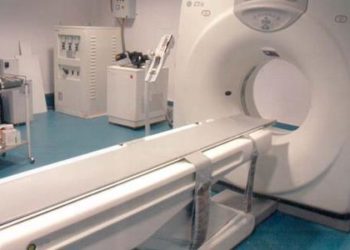CT coronary angiography clarifies diagnosis in patients with suspected angina due to coronary heart disease [SCOT-HEART trial]
1. Computed tomography coronary angiography (CTCA) increased the certainty but did not significantly affect the frequency of the diagnosis of angina secondary to coronary artery disease compared to standard care alone.
2. CTCA was significantly associated with a change in planned investigations and treatments, including a greater reduction in stress testing, but an increase in use of invasive coronary angiography.
Evidence Rating Level: 1 (Excellent)
Study Rundown: In patients presenting with chest pain, early and accurate diagnosis is crucial to prevent further invasive testing in the future, as well as prevent the misdiagnosis of non-cardiac chest pain in those with cardiovascular disease. CTCA is both highly sensitive and specific in detecting coronary heart disease, however, it does have its drawbacks, such as high levels of radiation exposure, poor image quality in obese patients, as well as the potential for arrhythmias and coronary calcification. In this study, participants were randomly assigned to receive either CTCA or standard care to determine the effect of CTCA on the diagnosis, management, and outcome of patients with stable suspected angina due to coronary heart disease at six weeks after baseline.
The results showed that CTCA improved the certainty but did not significantly affect the frequency of the diagnosis of angina secondary to coronary artery disease. CTCA also resulted in a significant change in planned testing and treatments, resulting in a decrease in stress testing but an increase in invasive coronary angiography. Additionally, CTCA produced a strong, but non-significant reduction in fatal and non-fatal myocardial infarctions. This study was limited by the exclusion of patients older than 75 years based on the assumption that most would have evidence of coronary heart disease which would lessen the effect of CTCA on this population. This study was strengthened by focusing on the effect of CTCA on patient and clinician-centered outcomes rather than comparing the accuracy of diagnosis between different imaging modalities or other testing methods.
Click to read the study in The Lancet
Relevant Reading: Diagnostic performance of coronary angiography by 64-row CT
In-Depth [randomized controlled trial]: The Scottish Computed Tomography of the HEART (SCOT-HEART) trial enrolled 4,146 participants (42%) of 9,849 patients aged 18-75 who were referred to a cardiology clinic for stable chest pain secondary to coronary artery disease. All patients underwent standard assessment and the likelihood of angina due to coronary heart disease and potential need for further testing was documented. Subsequently, patients were randomly assigned (1:1) to receive standard care and a coronary calcium score plus CTCA, or standard care alone. At six weeks, a clinician reviewed the patient’s management plan to document any changes to diagnosis, testing, or treatments, and participants’ angina symptoms were re-assessed compared to baseline.
At the initial clinic visit, 47% of patients were diagnosed with coronary artery disease and 36% with angina secondary to coronary artery disease. At six weeks, CTCA resulted in a change in coronary heart disease diagnosis in 558 (27%) patients vs. 22 (1%) patients with standard care, and a change in diagnosis of angina secondary to coronary heart disease in 481 (23%) patients vs. 23 (1%) patients with standard care (p<0.0001). CTCA improved the certainty (p<0.0001) and frequency (p=0.0172) of coronary heart disease diagnosis but in the diagnosis of angina due to coronary heart disease, the certainty increased (p<0.0001) but frequency was not significantly affected (p=0.1289). CTCA was also associated with a 38%, but non-significant, reduction of coronary heart disease death and non-fatal MI (p=0.0527). Finally, 31 (2%) patients had an adverse event due to CTCA, mostly due to reactions to contrast medium.
Image: CC/Wiki
©2015 2 Minute Medicine, Inc. All rights reserved. No works may be reproduced without expressed written consent from 2 Minute Medicine, Inc. Inquire about licensing here. No article should be construed as medical advice and is not intended as such by the authors or by 2 Minute Medicine, Inc.


![2MM: AI Roundup- AI Cancer Test, Smarter Hospitals, Faster Drug Discovery, and Mental Health Tech [May 2nd, 2025]](https://www.2minutemedicine.com/wp-content/uploads/2025/05/Untitled-design-350x250.png)






